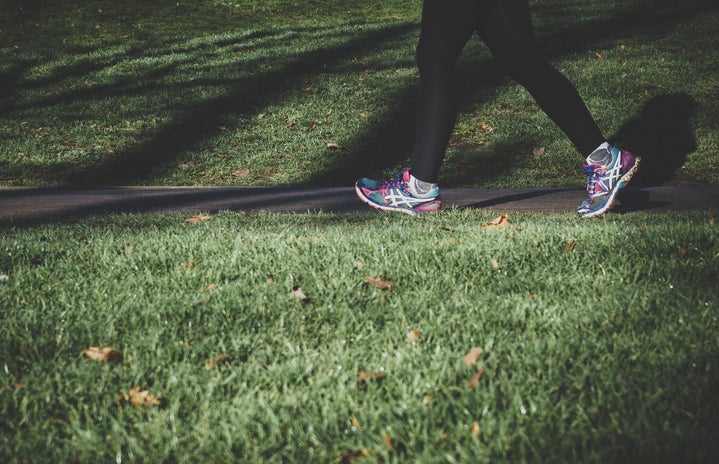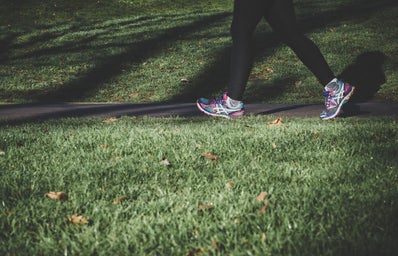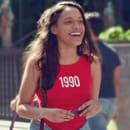The sports journalism has always been linked with male majority, what culturally helps to spread the myth that sports are not a “girl thing”. But why not? Unfortunately, the answer given to future female journalists whose desire is to follow the sports field is still full of prejudices. A lot of us have already heard our speech wouldn’t be given the same credibility if the same was spoken by a man, and that we wouldn’t even be listened, sometimes.
A research with female students of Cásper Líbero University, majorly graduating on journalism, confirms the sexist and vile scenario when talking about the sports coverage: a hundred per cent of the interviewed believe it’s a rough area for women to get their space. Therefore, it can be said the female persistence on following the sports journalism is a symbol of resistance and fight for gender equality.
“It was the men’s world and women wouldn’t get in, then I said ‘what? Get in, and even stay in”, said Regiani Ritter, one of the firsts to fight to the female presence on sports journalism, on an interview to Cásper Líbero’s channel. Just like Regiani, other five of these women haven’t given up when faced prejudice. And they got in and made history.
#1 – Rádio Mulher: Zuleide Ranieri Dias
Image Source: Bastidores do Rádio
Zuleide joined the firsts female journalists group that used to cover sports on Rádio Mulher, back to the 1970’s, when it was still Rádio Difusora Hora Certa. The group’s slogan was short, but tried to win its audience with a innovative proposal for that time: “more one woman at the stadium, less one bad word”.
The idea was to create a female-only team to cover sports, but, just like any other brutal innovation back on that time, it was object of a lot of criticism. Unfortunately, the group was undone after the male pressure insisted the program should also embrace some male presenters.
#2 – Regiani Ritter
Image Source: Amarela Magazine
Regiani started acting on journalism on the 1980’s, and three years later, joined the sports area, achieving the title of the first female reporter on field in Brazil, with Gazeta. At the beginning, Ritter had to find her vocation to talk about soccer, and right after, had already became a commentator. But she remembers her path ‘till being recognized was a long one, cause the scenario was composed of only a few women.
Nowadays, she still works at Rádio Gazeta and Revista Geral, knowing about her importance on brazilian journalism, which opened doors to women on the sports area. In her honor, it was created the Regiani Ritter Trophy, which goal is to honor and to award sports journalists.
#3 – Isabela Scalabrini
Image Source: TV Globo
Isabela, right when started working as a reporter for Globo, joined the sports department, producing content to many modalities. She says when she first arrived, there were almost no women working, as on the soccer session, there were only men.
After the 1983 Pan American Games, her career launched and she traced her work on sports journalism joining the first team of the famous Globo Esporte.
#4 – Renata Fan
Image Source: TV Foco
Renata Fan is a journalist and nowadays leads the TV program Jogo Aberto, of Rede Bandeirantes. The woman, from Rio Grande do Sul, started her career on the sports area in 2003 with Milton Neves, also a sports journalist. From then on, Renata found her space on the field, but tells her path up to success was not so easy on the backstages. She’s been questioned, multiple times, if her achievements weren’t due to her beauty (Renata’s already been elected Miss Brasil).
Fan, on interview to ESPN channel, says she was pretty unnatural, but step by step, lost her fear of being criticized showing she was as capable of commenting as anyone else.
#5 – Fernanda Gentil
Image Source: Revista Glamour
Fernanda Gentil is a journalist and presenter who works on Rede Globo, taking on Esporte Espetacular. Since graduation, Fernanda acts on the sports area and has already won the Prêmio Extra de Televisão on the “Sports Personality” category, back in 2014.
The reporter tells she’s never witnessed any discrimination for being a woman who talks about sports, but doesn’t deny the prejudice exists: “you feel you’re the biggest minority on the sports field”.
According to the International Sports Press Survey (ISPS) of 2011, in Brazil, only seven per cent of all sports journalism content is signed by woman. It means that times have changed, but it’s still needed a lot of fight so women will occupy a space that, culturally, is destined to men.
“If a women can be a President, First Minister, be the most influential person on Europe’s economy, like Angela Merkel, from Germany, then why can’t women work on sports journalism? – Regiani Ritter.



